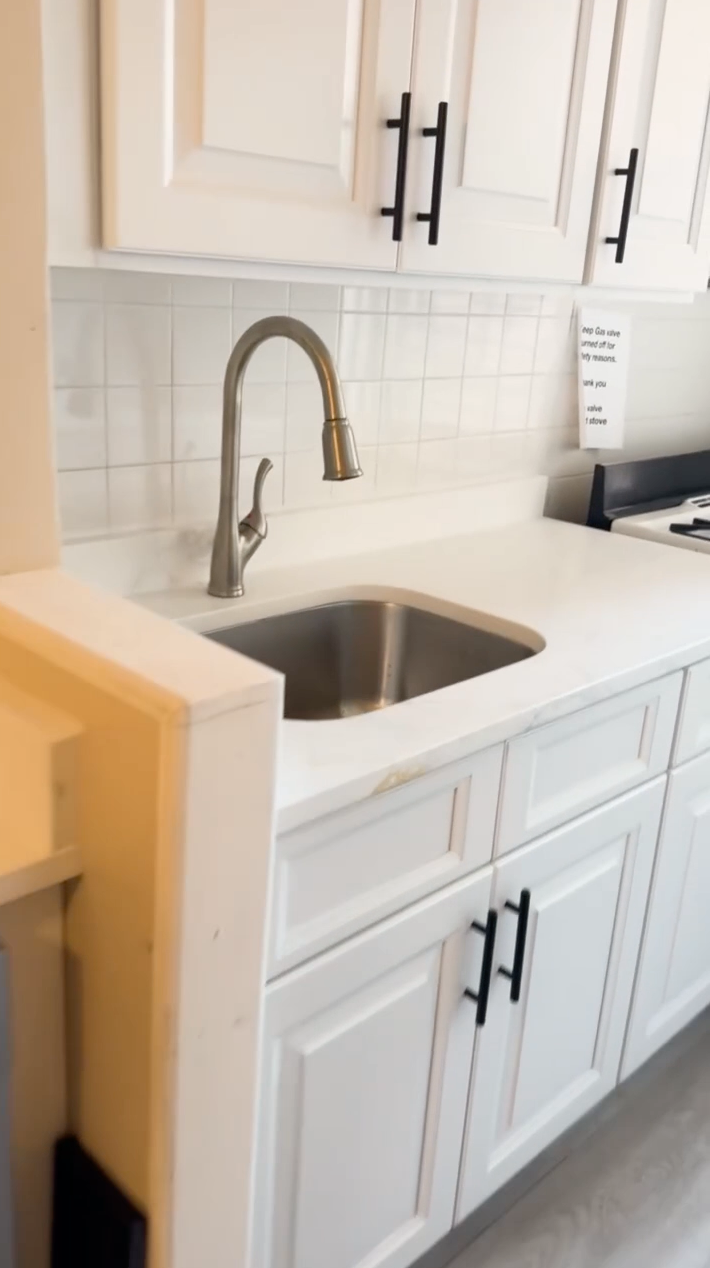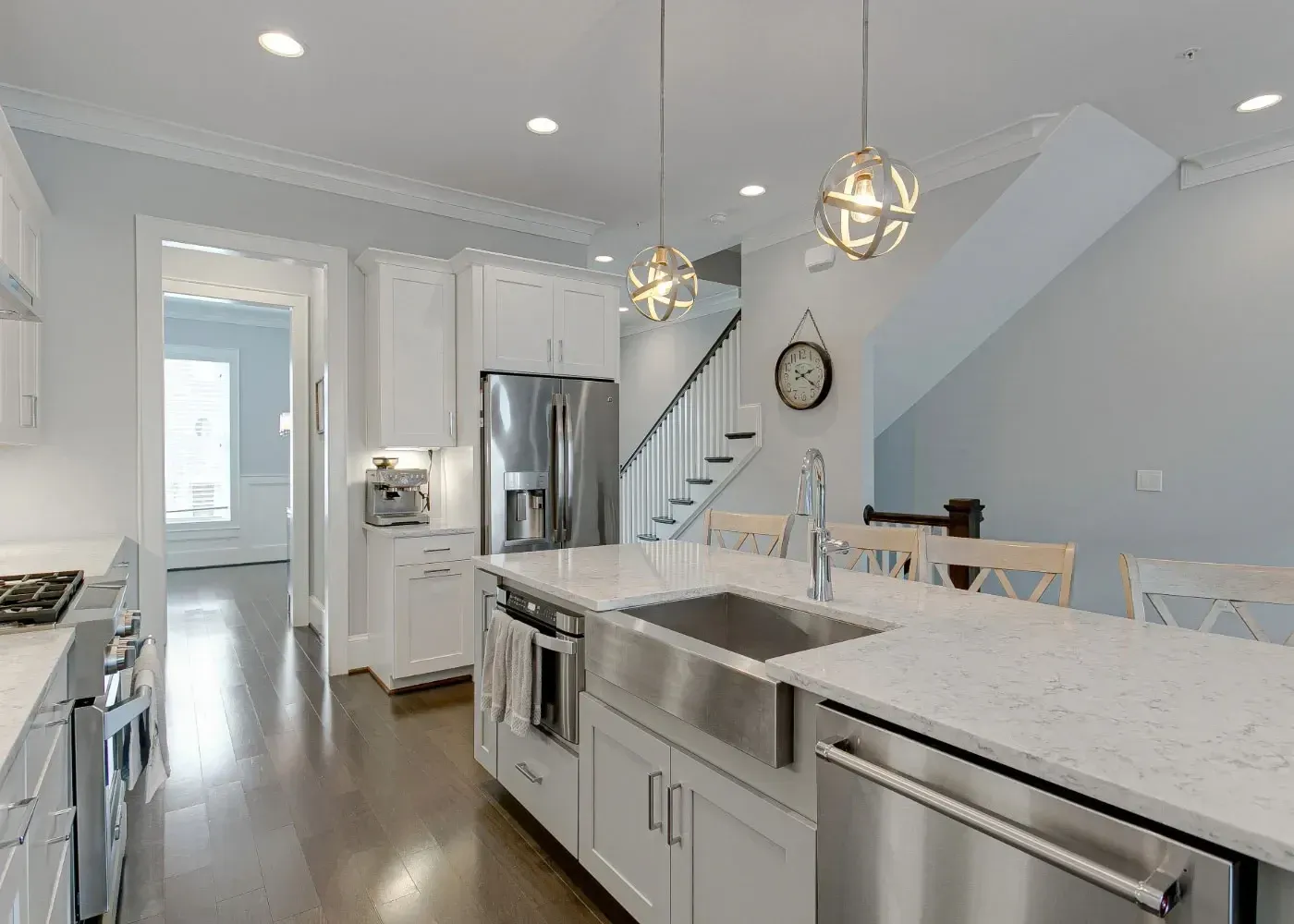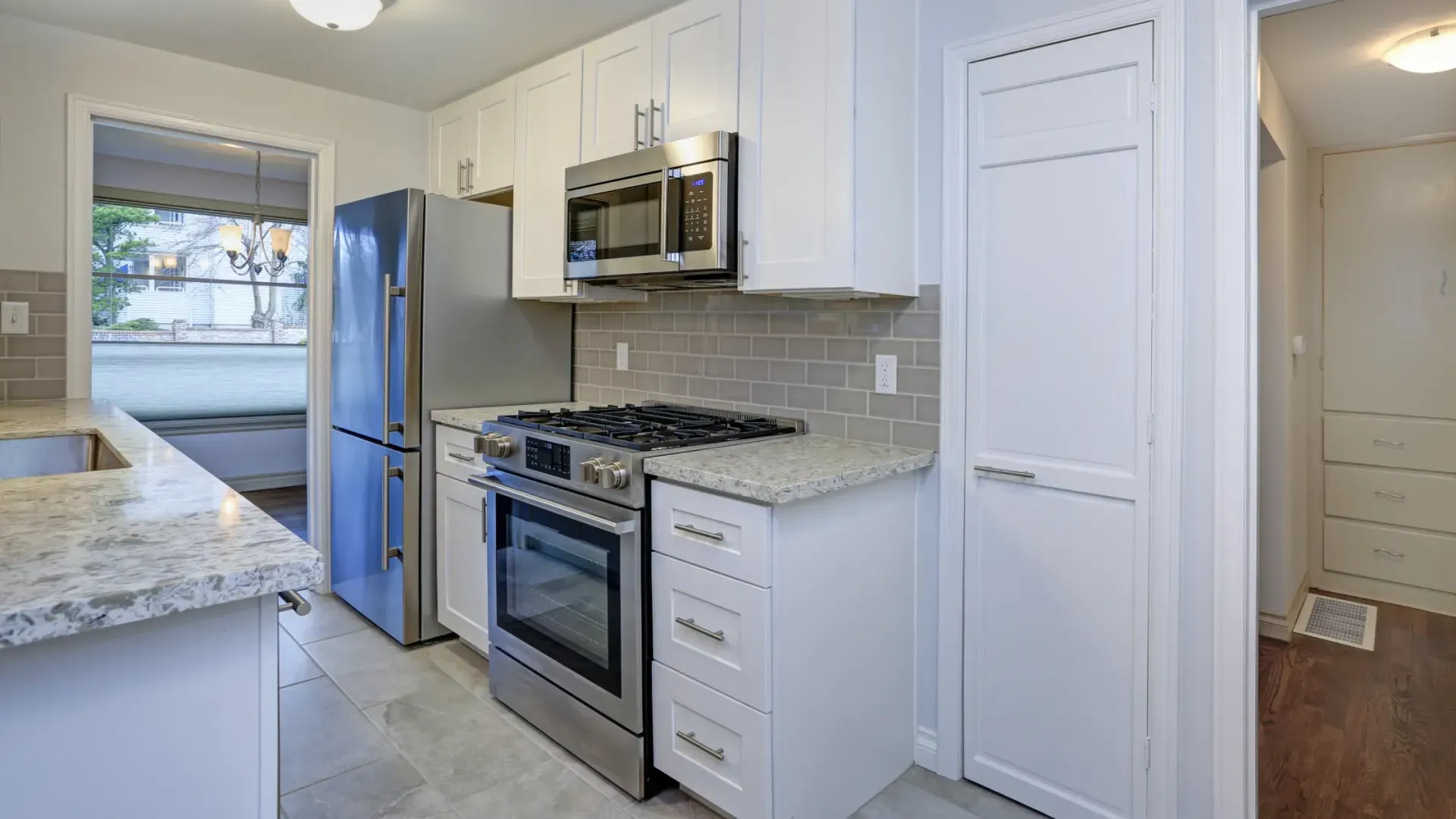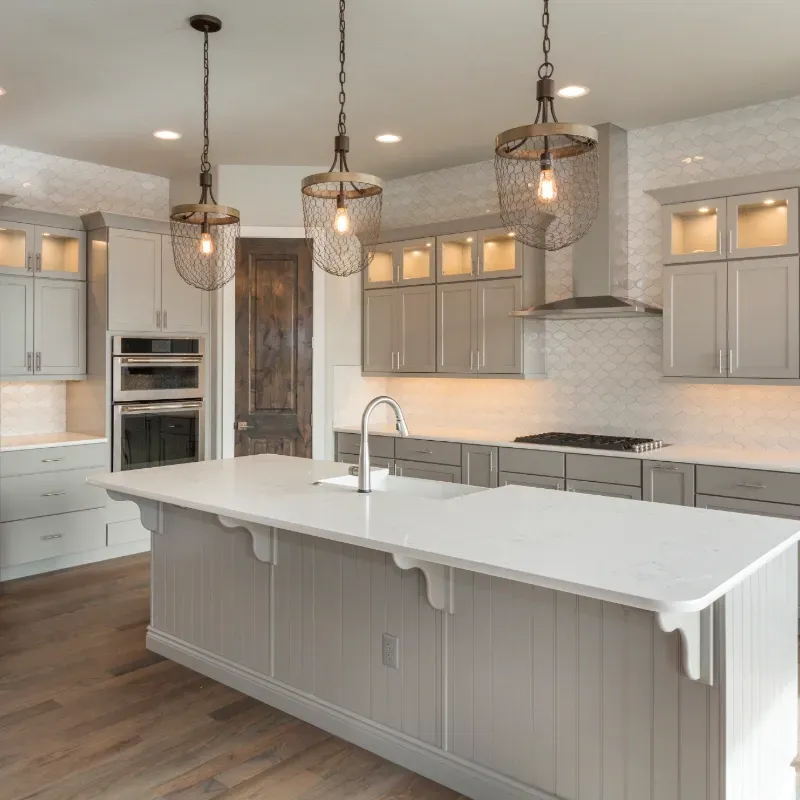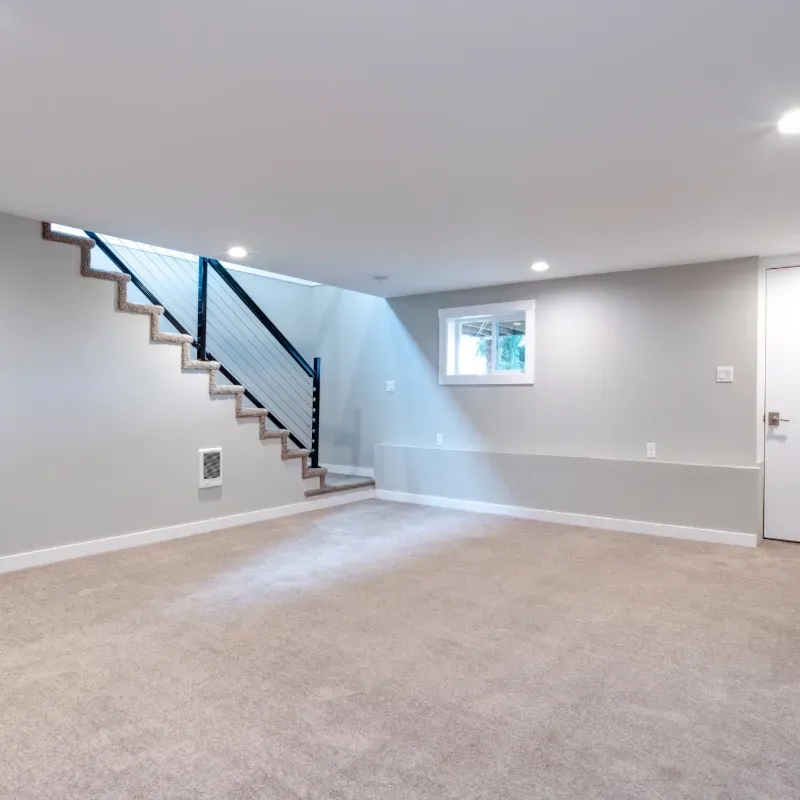If you're considering a home improvement project, chances are that a kitchen remodel is one of the top options on your list. Not only can it enhance your living space, but it can also increase your property's value. However, it's important to understand the return on investment (ROI) for kitchen renovations before diving into the project. This knowledge can significantly impact your financial planning and decision-making process.
In this blog post, we'll explore
kitchen remodeling ROI's ins and outs. We'll shed light on why it's important to understand, the factors that influence it, and strategies to maximize your returns. We'll also provide real-life examples and statistics to illustrate the potential financial benefits of kitchen remodels.
Ultimately, by the end of this post, you'll have a thorough understanding of kitchen remodel ROI. It'll equip you with the knowledge to make informed decisions that balance your aesthetic desires with your financial considerations.
Brief Overview of Kitchen Remodel ROI
Kitchen remodels vary widely in scope and scale, from minor updates like replacing cabinet doors and hardware to major overhauls involving new appliances, countertops, and floor plans. The ROI of these projects can also vary, influenced by the current market trends, the quality of materials used, and the overall appeal of the final product to potential buyers. For instance, minor kitchen remodels have been shown to offer a higher ROI compared to major renovations, with figures suggesting an 87% ROI for minor updates and around 80% for more significant overhauls.
Importance of Understanding ROI for Home Renovations
Investing in a kitchen remodel is not just about achieving a new look; it's also a financial decision that can affect the overall value of your home. Understanding the potential ROI helps homeowners decide how much to invest in renovation projects. It ensures that the improvements made are aesthetically pleasing and financially prudent, potentially leading to a higher home resale value.
Preview of Key Sections in the Blog Post
This post will cover several critical areas to provide a comprehensive understanding of kitchen remodel ROI:
- Definition and Factors Influencing ROI: We'll explore what ROI means in the context of kitchen remodeling and the various factors that can affect it.
- Real-life ROI Examples and Statistics: By examining real-life examples and relevant statistics, we'll illustrate the potential financial benefits of kitchen remodels.
- Benefits of Kitchen Remodel ROI: Beyond financial gains, we'll discuss how a well-planned kitchen remodel can enhance aesthetics, functionality, and energy efficiency.
- Strategies for Maximizing ROI: From budgeting tips to design choices, we'll offer strategies to help homeowners maximize their kitchen remodel ROI.
- Key Considerations for Homeowners: Finally, we'll delve into important considerations for homeowners planning a kitchen remodel, including balancing personal preferences with market demands and the importance of quality materials and workmanship.
By the end of this post, you will have a thorough understanding of kitchen remodel ROI and be equipped with the knowledge to make informed decisions that balance aesthetic desires with financial considerations.
Understanding Kitchen Remodel ROI
Definition of ROI in the Context of Kitchen Remodeling
Return on Investment (ROI) in kitchen remodeling measures the financial return you get from the money you spend renovating your kitchen. It is calculated by comparing the increase in home value due to the remodel with the project's cost. The ROI formula is:

where net return on investment is the difference between the home's value after remodeling and its value before the project.
Distinction Between Minor and Major Kitchen Remodels and Their Respective ROIs
Kitchen remodels are categorized as either minor or major, with each type having different average ROIs. A minor kitchen remodel typically includes cosmetic updates such as painting, refacing cabinets, or replacing hardware and has an average ROI of about 81.1%. On the other hand, major kitchen remodels involve more extensive work, possibly including structural changes, with average ROIs of 59% for midrange projects and 53.5% for upscale remodels. It's generally observed that minor remodels yield higher ROIs than major ones.
Factors Influencing ROI
Several factors can influence the ROI of a kitchen remodel:
- Material Quality and Durability: The quality and longevity of the materials used can affect the value added to your home.
- Layout Design and Functionality: A well-designed, functional kitchen layout can significantly impact the ROI.
- Sustainability and Energy Efficiency: Features that improve a home's energy efficiency can be financially beneficial in the long run.
- Aesthetic Appeal: A visually appealing kitchen can make a home more attractive to potential buyers.
- Local Market Conditions: The ROI of a kitchen remodel can also be affected by your area's real estate market trends, which influence what buyers are looking for and willing to pay extra.
Homeowners must understand these factors to make informed decisions about their kitchen remodels, ensuring the improvements align with their financial goals and market demands.
Real-life ROI Examples
In the bustling real estate market of New York City (NYC), kitchen remodels can significantly impact a property's value and appeal. Here, we'll explore real-life examples of kitchen remodel ROI, focusing on minor and major renovations within the NYC region and how regional trends influence these returns.
Minor Kitchen Remodels with High ROI
In NYC, minor kitchen remodels often yield a high ROI due to the city's competitive real estate market. For example, a Manhattan apartment might substantially increase interest and value by simply updating appliances, refinishing surfaces, and installing modern lighting. These updates can refresh the space without structural changes, making the kitchen more appealing to potential buyers. A minor remodel in NYC can expect an ROI ranging from 70% to 80%, reflecting the city's high demand for move-in-ready spaces.
Major Kitchen Remodels and Their ROI
While more costly, major kitchen remodels in NYC can also offer significant returns, especially in luxury markets where buyers expect high-end finishes and state-of-the-art appliances. A major remodel might include reconfiguring the layout to create an open-plan kitchen, installing custom cabinetry, or adding high-end stone countertops. While the ROI for major remodels might be slightly lower than for minor updates due to the higher initial investment, they can still be quite lucrative in NYC's luxury segments, with ROIs often ranging from 60% to 70%.
Impact of Regional NYC Trends on ROI
The ROI of kitchen remodels in NYC is also influenced by regional trends. For instance, sustainability and energy efficiency have become increasingly important to NYC buyers, with many looking for features like energy-efficient appliances and sustainable materials. Incorporating these elements can enhance the appeal of a kitchen remodel, potentially increasing its ROI.
Moreover, the preference for open-plan kitchens continues to dominate the NYC market, influencing the ROI of projects that create more open and fluid living spaces. The high value placed on outdoor access, such as a terrace or garden, has also led to innovative kitchen designs that integrate indoor and outdoor living, further impacting ROI.
Financial Aspects of Kitchen Remodels
In the New York City region, the financial aspects of kitchen remodels are particularly important due to the high cost of living and the premium on space. We'll examine the average costs for minor and major kitchen remodels, break down these costs by category, and discuss financing options relevant to NYC homeowners.
Average Costs of Minor and Major Kitchen Remodels
In NYC, the average cost for a minor kitchen remodel can range from $15,000 to $25,000, depending on the finishes and the extent of the updates. The costs for major kitchen remodels can escalate significantly, often starting at $30,000 and exceeding $100,000 for high-end renovations in luxury properties. These figures can vary based on the size of the kitchen, the quality of materials chosen, and the project's complexity.
Breakdown of Costs (Materials, Labor, Design)
The costs of a kitchen remodel in NYC can be broken down into three main categories:
- Materials: Cabinetry, countertops, appliances, flooring, and fixtures. High-quality materials are in demand in NYC, and their costs can be substantial, especially for custom designs and luxury finishes.
- Labor: Labor costs in NYC are higher than the national average due to the higher cost of living and the expertise required for working in NYC's unique building environments. Labor can account for a significant portion of the overall budget.
- Design: Hiring a designer or architect can add to the cost but also ensure that the space is used efficiently and that the remodel adds maximum value to the property.
Financing Options and Considerations
Financing a kitchen remodel in NYC can be approached in several ways:
- Savings: Using personal savings to fund a remodel is the most straightforward option, avoiding interest and debt.
- Home Equity Loans or Lines of Credit: These allow homeowners to borrow against the equity in their home, often at favorable interest rates.
- Personal Loans: Unsecured personal loans can be an option, though they typically come with higher interest rates than home equity products.
- Refinancing: Some homeowners may choose to refinance their mortgage to cash out equity for a remodel.
- Credit Cards: Credit cards can be used for smaller updates, but they usually have high interest rates and are best for short-term financing.
When considering financing options, NYC homeowners should be mindful of the potential impact on their overall financial situation and the future value of their property. It's also important to consider the timeline for recouping the investment, especially if a sale of the property is anticipated in the near future.
Strategies for Maximizing ROI
Maximizing the return on investment (ROI) for a kitchen remodel in New York City requires strategic planning and an understanding of the local real estate market trends across its boroughs: Brooklyn, Manhattan, Queens, The Bronx, and Staten Island. Here are key strategies to consider:
Choosing the Right Scale of Remodel Based on Your Situation
The scale of your kitchen remodel should align with your financial goals and the current state of your property. Even minor upgrades can substantially increase property value in areas like Manhattan, where the median home sold price is significantly high. Conversely, homeowners might consider more extensive renovations to stand out in boroughs with more variability in property values, such as Queens or The Bronx.
Investing in High-ROI Upgrades
Focus on upgrades known to offer high ROI. In Brooklyn, for instance, where condo prices have seen an uptick, investing in modern, high-quality kitchen finishes can appeal to the upscale market. Countertops and appliances are key areas where strategic investments can pay off, especially in markets like Manhattan, where luxury is often expected.
Importance of Quality Materials and Workmanship
Regardless of the borough, quality materials and workmanship are crucial for maximizing ROI. Durable, aesthetically pleasing materials can significantly impact a home's appeal and value. Moreover, skilled workmanship ensures that the remodel stands the test of time, an important consideration for NYC's discerning buyers.
Understanding Local Real Estate Market Trends
Each NYC borough has unique market trends that can influence ROI:
- Brooklyn: The market shows a preference for condos and coops, with median prices for condos on the rise. A focus on modern, efficient designs can appeal to this market.
- Manhattan: Remains a buyer's market, with a high median sold price. Luxury upgrades and efficient use of space can attract buyers.
- Queens: With a slight decrease in median sold prices, renovations that enhance aesthetics and functionality without overcapitalizing can be beneficial.
- The Bronx: A buyer's market with an increasing inventory. Cost-effective, impactful renovations could appeal to first-time homebuyers or investors.
- Staten Island: Not specifically mentioned, but typically, this borough values family-oriented features, spacious kitchens, and practical upgrades.
Conclusion
The return on investment (ROI) from a kitchen remodel can be a significant factor in your home's immediate enjoyment and its long-term financial performance, especially in a market as dynamic as New York City. Throughout this blog post, we've explored the various aspects that contribute to the ROI of kitchen renovations, from the scale of the remodel to the choice of materials and the importance of understanding local real estate trends.
As we've seen, minor kitchen remodels often yield a higher ROI due to their lower upfront costs and the substantial impact they can have on a home's appeal. Major remodels, while more expensive, can still offer considerable returns, particularly when they align with the expectations of the local market and are executed with high-quality materials and workmanship.
For homeowners in NYC, making informed decisions based on ROI data is crucial. It's not just about the immediate aesthetic improvements; it's about making strategic choices that will add the most value to your property in the long run. Whether you're in
Brooklyn,
Manhattan,
Queens,
The Bronx, or
Staten Island, understanding the unique demands of your local market is key to ensuring your investment pays off.
In conclusion, investing in a kitchen remodel is more than just updating a space; it's about enhancing your quality of life and making a savvy financial decision. With careful planning, a clear understanding of the costs involved, and a strategic approach to renovations, your kitchen remodel can provide immediate satisfaction and long-term financial benefits.

